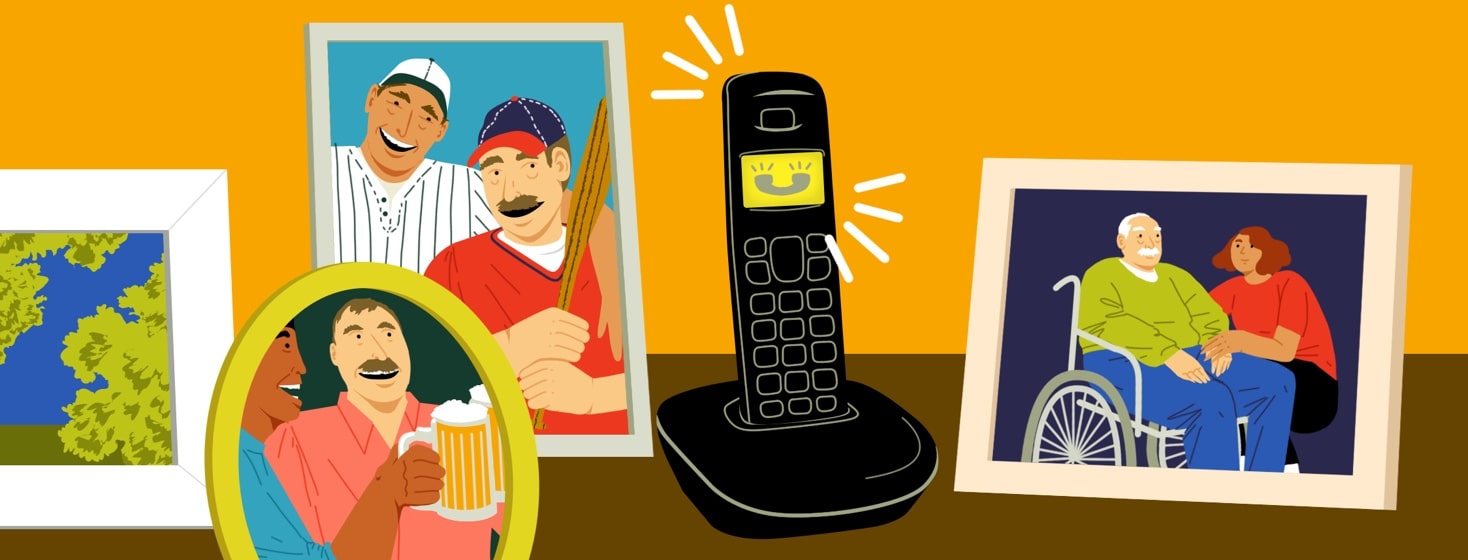When the Past Calls: Letting Go
Some time after Daddy’s dementia diagnosis, a couple of old family friends contacted me online. They were looking to contact Daddy and asked me for his phone number. That simple request started such an awkward conversation. They were the kind of old friends who flew in and out of our lives with gaps in between. Those gaps could last for years.
We hadn’t had contact with them in a very long time, and they were not in the loop about what was going on with our family and Daddy’s health. Like I said, they weren’t people we talked to every day. To be honest, they popped up like a bad penny from time to time, and they usually needed something. Daddy had nothing to give.
The conversation went like this:
Them: “Can you have Bobby call us?”
Me: “Daddy isn’t well.”
Them: “Ok. Let us know.”
Me: “Did you need something?”
Them: “We wanted to talk to Bobby.”
Explaining that Daddy couldn't talk
So, then I had to explain to them that Daddy couldn’t talk. They thought I meant, “He can’t talk right now.” I had to explain that it wasn’t that he didn’t want to. It wasn’t that I was keeping him from them. It wasn’t that he didn’t have a phone. He couldn’t talk. I mean, he could physically speak, but even in-person conversations were very straining, difficult, and often incoherent.
At that point in time, he had already had the brain hemorrhage. Aphasia had largely stolen his language skills. Dementia had affected his cognition. It was a hard conversation to have with anyone, much less someone I hadn’t spoken to at all in the past three years, and five years ago the time before that. I wasn’t thrilled to be having it.
They wound up asking me about where he was and if they could visit. I warned them that he might not know them, but gave the information over half knowing that they wouldn’t likely show up. They didn’t. As cold as it may sound, I’m glad they didn’t. He needed familiarity from immediate family and as little confusion as possible from people he might then perceive as strangers.
I did explain to them that he wasn’t physically well. I told them he was mostly in a wheelchair at that point, and got upset easily. Maybe I talked them out of it. I’m ok with that if I did. Protecting his mental state was more important at the time than making sure to entertain them and their sometimes shady motives.
What was best for Daddy
In the end, Daddy was surrounded by the important people in his life. We were steady and constant. He knew us, if not by name, by sight. He knew we were his. He was comfortable with us, whether we were sharing silence or nodding along to the rattling of his jumbled sentence fragments. There was an ease in knowing we didn’t want anything from each other but time and company. He no longer needed people showing up who needed something from him.
Letting go of people who no longer fit into your life is an ok thing to do for all involved. You don’t owe anyone the right to be in your life if they haven’t earned it. They say that some people are only around for a season, and that’s ok. Daddy had his “lifetime” crew, and we showed up every time.

Join the conversation